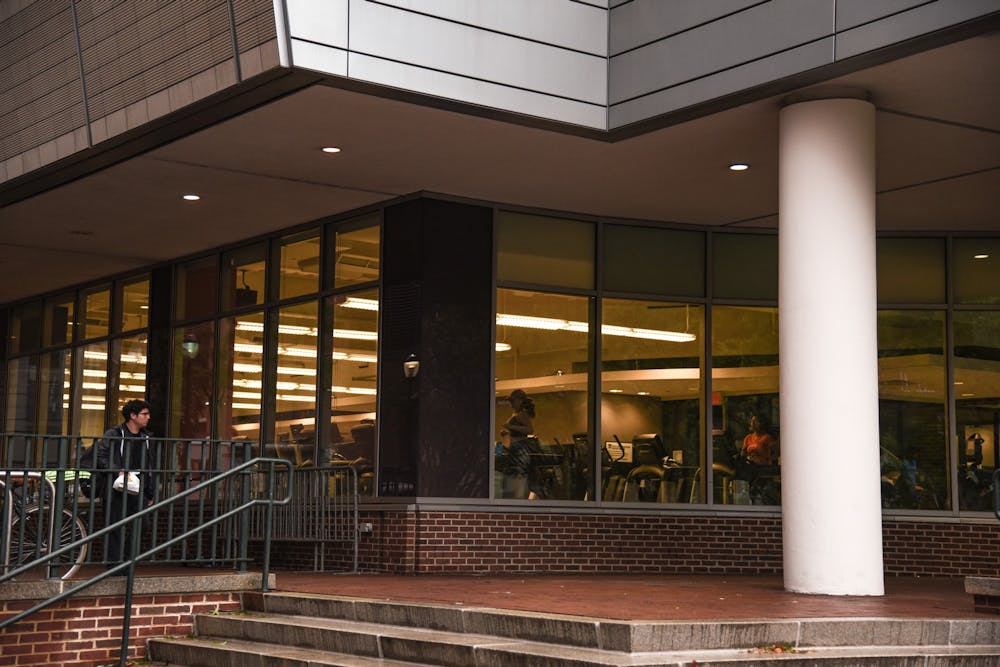
This month, Penn community members can participate in trauma-informed yoga sessions developed to recognize survivors during Domestic Violence Awareness Month.
The sessions, organized by Penn Violence Prevention and Penn Campus Recreation, will be held at Pottruck each Wednesday from 9 to 10 a.m. until the end of October. The classes will help attendees increase their bodily awareness and promote physical and emotional safety. They will also tailor to the needs of trauma survivors and provide a space for healing.
Sessions are capped at 40 attendees, but all Penn students, staff, and faculty are invited to attend. Although it is not required, PVP recommends registering ahead of time. There is no prior yoga experience necessary to join.
Trauma-informed yoga differs from the traditional approach to yoga because it is done with non-triggering poses. Warrior poses and most standing poses are commonly practiced, while child’s pose and certain seated or backbend poses are often avoided for sexual assault survivors.
Classes are taught by two local instructors trained in trauma-informed practices: Nicole Pollard from Studio 34 and Allyssa Hutchison from Yoga Habit. Trauma-informed yoga instructors focus on promoting breath work, consensual physical assistance, and inclusive language.
PVP Associate Director Reema Malhotra told The Daily Pennsylvanian that the yoga series was a way to grow community and increase in-person engagement after the pandemic.
“We obviously weren’t doing as many in-person events in the last couple of years, so this was really a perfect opportunity for PVP to do something that is in-person, something that is a light lift for students, and build a little bit of community as well,” Malhotra said.
PVP Associate Director Julie Millisky emphasized that that program is designed to create a safe space for community members to relax.
“We wanted to create a space where folks … didn’t feel like they had to participate in an educational workshop in order to have a safe and comfortable space,” Millisky said.
The Daily Pennsylvanian is an independent, student-run newspaper. Please consider making a donation to support the coverage that shapes the University. Your generosity ensures a future of strong journalism at Penn.
Donate



